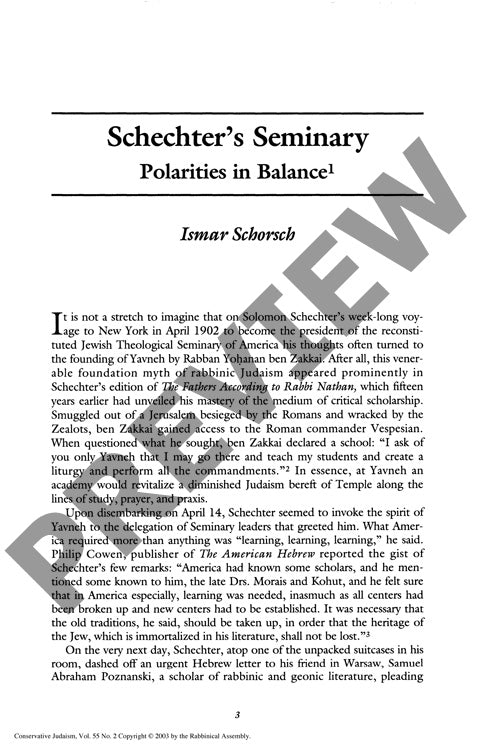Schechters Seminary Polarities in Balanc
Couldn't load pickup availability
Solomon Schechter's transformative leadership of the Jewish Theological Seminary of America (1902-1915) established a distinctive vision of Judaism anchored in creative tension rather than doctrinal resolution. Rather than systematically articulating Conservative Jewish theology, Schechter embodied it through his commitment to maintaining vital polarities: reverence alongside critical scholarship, tradition with historical development, mysticism balanced against rationalism, and particularism in dialogue with universalism. Drawing on extensive archival materials, correspondence, contemporary accounts, and Schechter's published works, this study reconstructs his intellectual framework and institutional vision. His innovative decisions at JTS—recruiting faculty who merged Eastern European learning with Western critical methods, mandating secular education for admission, establishing the Teachers Institute, and expanding women's roles—reflected this integrative approach. Schechter's enduring influence on Conservative Judaism stemmed from his refusal to sacrifice either truth to reverence or reverence to truth, fostering instead an academy where rigorous scholarship and deep religious commitment could coexist. His concept of "Catholic Israel" provided a framework for understanding Jewish authority as residing in the historical Jewish community rather than in either divine revelation alone or individual conscience alone.

More Information
-
Physical Description
-
Publication Information
Published 2003
ISBN
-
Publication Credits
Ismar Schorsch

